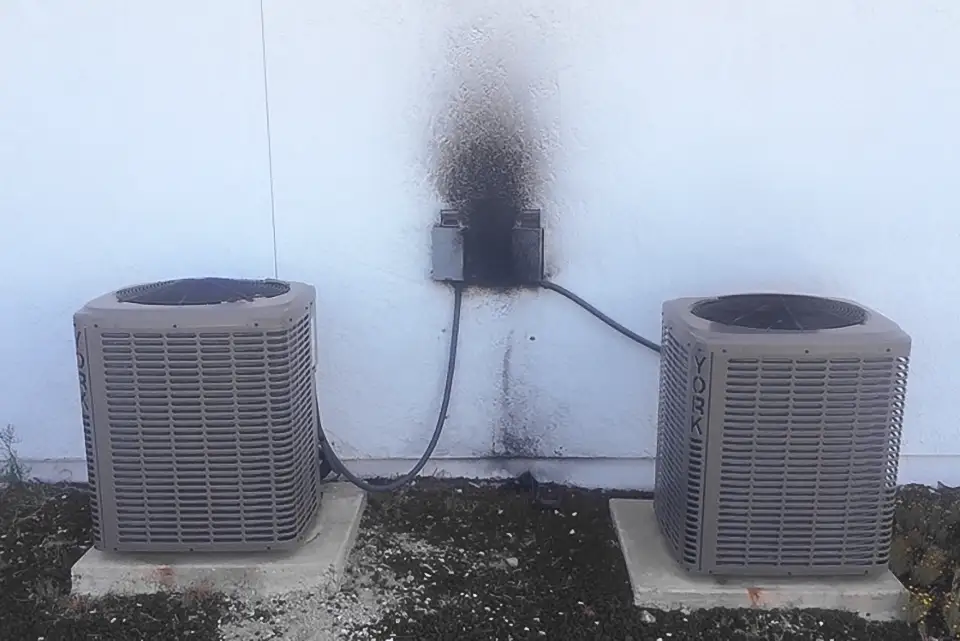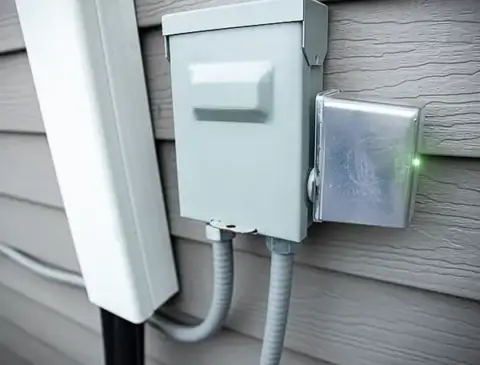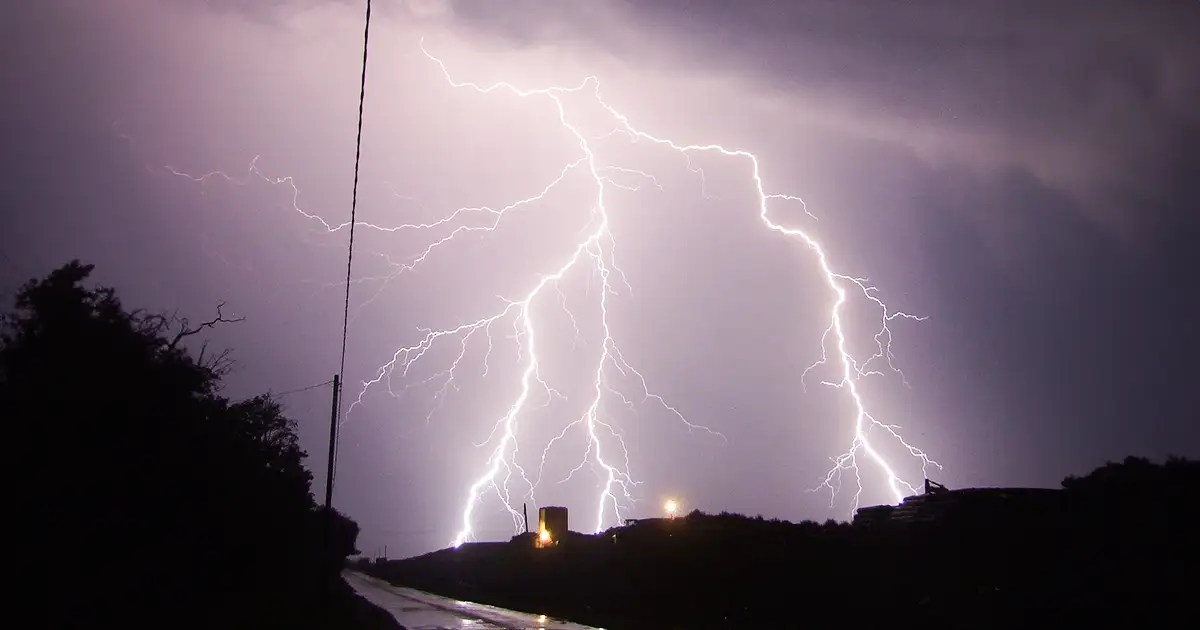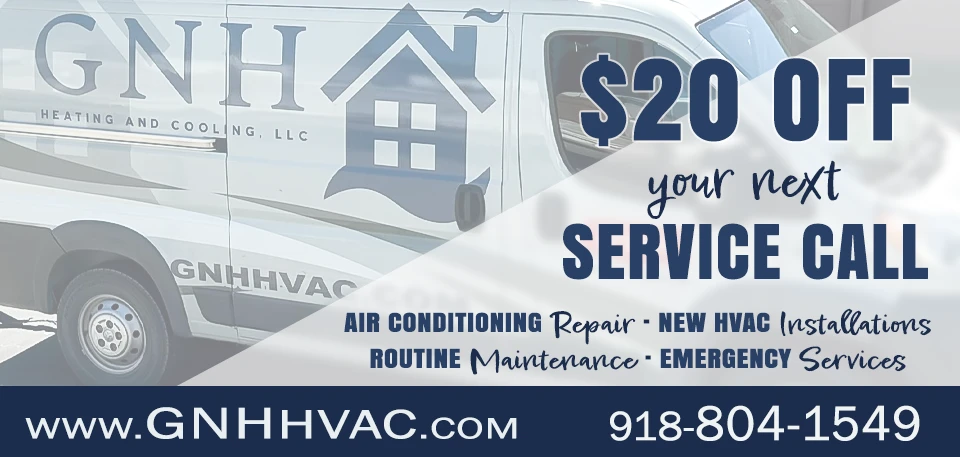As a homeowner in Owasso, OK, you likely have rooms and rooms of expensive, delicate electronics that you plug into surge protectors in case of a power surge.
But have you ever stopped to think about how vulnerable your HVAC system is to power surges? With the increasing reliance on modern, energy-efficient, and high-tech HVAC units, protecting these valuable investments from potential hazards is more important than ever.
A power surge is one of the most significant yet often overlooked threats to your HVAC system.
Power surges can strike unexpectedly, damaging or even destroying the sensitive electronic components that keep your HVAC system running smoothly. Fortunately, a simple, cost-effective solution can safeguard your system and save you thousands of dollars in repairs or replacements.
This month, GNH Heating & Cooling will walk you through everything you need to know about surge protectors, why they’re essential for your HVAC system, and how they can protect your home and family’s comfort.
What is a Power Surge?
Before we can understand why HVAC surge protectors are so important, we must first grasp what a power surge is and how it can affect your home.
In simple terms, a power surge is a sudden spike in voltage in your electrical system. These surges usually last no more than a fraction of a second. Still, they can carry thousands of volts, which is far more than your HVAC system and other electronic devices are built to handle.
Power surges can come from a variety of sources, including:
- Lightning strikes: A single lightning bolt can produce an immense surge of energy, sending a powerful spike through your electrical wiring. Even if a storm is miles away, the electrical grid can carry this energy to your home.
- Fallen power lines: Whether due to storms, accidents, or maintenance issues, a downed power line can cause fluctuations in voltage that result in a power surge.
- Large appliances turning on and off: Your refrigerator, air conditioner, and other large appliances require significant amounts of power to start up and shut down, which can cause smaller, repeated surges that still harm sensitive electronics over time.
- Faulty wiring and overloaded circuits: In some cases, issues within your home’s electrical system, such as faulty wiring or overloaded circuits, can lead to power surges.
While lightning strikes and downed power lines might be the first causes that come to mind, everyday events like appliances cycling on and off are much more common culprits behind power surges. The damage from these smaller surges may not be immediately noticeable, but over time, they can degrade your HVAC system’s performance, leading to expensive repairs and a shortened lifespan.
How Power Surges Affect HVAC Systems
Your HVAC system consists of intricate components that work together to regulate your home’s temperature, manage airflow, and ensure energy efficiency. Unfortunately, many of these components are highly sensitive to changes in voltage. A power surge can wreak havoc on these delicate parts, leading to costly damage.
Some of the most vulnerable components in your HVAC system include:
- Control boards: Often referred to as the “brain” of the system, control boards manage communication between the thermostat and the HVAC system. A surge can fry the control board, leading to malfunctions or a complete system shutdown.
- Compressors: The compressor is one of the most expensive parts of an HVAC system, responsible for pressurizing refrigerant and allowing the system to cool or heat your home. A power surge can cause the compressor motor to overheat, burn out, and fail.
- Capacitors: These small but essential components store energy and help power the motors in your HVAC system. A power surge can overload the capacitor, rendering it ineffective and preventing your system from operating correctly.
- Relays and switches: These components control the flow of electricity to different parts of your HVAC system. If a surge causes them to fail, the system may not turn on or may operate erratically.

The consequences of a damaged HVAC system due to a power surge can be severe. You might experience a loss of heating or cooling at the worst possible time—during a heatwave or cold snap—or face repair bills that run into the thousands.
In some cases, the entire system may need to be replaced, which can be a significant financial burden. That’s why taking proactive steps to protect your HVAC system is crucial for ensuring its longevity and reliability.
How Surge Protectors Work to Protect Your HVAC System
Now that we’ve established the risks power surges pose to your HVAC system, let’s dive into how surge protectors work and why they’re a must-have for any homeowner.
A surge protector is an electrical device that protects your HVAC system and other electronics from voltage spikes. When a power surge occurs, the surge protector detects the excess voltage and redirects it away from your system, preventing the surge from reaching your HVAC components and causing damage.
Surge protectors work similarly to a pressure valve in a water system. Just as a pressure valve releases excess water to prevent a hose from bursting, a surge protector releases excess electrical energy to protect your devices.
The core component of a surge protector is a metal oxide varistor (MOV), which adjusts its resistance based on the voltage. When the voltage remains within a safe range, the MOV allows the current to flow normally. However, when a surge occurs, the MOV’s resistance drops, allowing it to absorb the excess energy and divert it safely away from your HVAC system.
Some surge protectors also include thermal fuses, which act as an additional layer of protection in extreme conditions. If the temperature within the surge protector rises to dangerous levels due to a large surge, the thermal fuse will melt and disconnect the circuit, preventing the protector from overheating or causing a fire.
Benefits of Installing an HVAC Surge Protector
Installing a surge protector for your HVAC system offers several key benefits, making it a wise investment for your home and family’s comfort. Here’s why surge protectors are essential:
Protects Your Investment
Your HVAC system is likely one of the most expensive appliances in your home, often costing several thousand dollars. Surge protectors provide a layer of defense against voltage spikes, helping to safeguard your investment from unexpected damage. By preventing costly repairs or the need for premature replacement, a surge protector can save you a significant amount of money in the long run.
Extends Equipment Lifespan
Power surges don’t just cause immediate damage; they also degrade your HVAC system’s components over time. Repeated exposure to voltage fluctuations can shorten the lifespan of critical parts like compressors and control boards. With a surge protector in place, you can reduce wear and tear on your system, helping it operate efficiently for years to come.
Prevents Disruptions to Comfort
A power surge can strike at any time, leaving you without heating or cooling when you need it most. By installing a surge protector, you reduce the risk of sudden breakdowns and ensure that your home remains comfortable, even during severe weather conditions or electrical grid issues.
Provides Peace of Mind
As a homeowner, knowing that your HVAC system is protected from unpredictable power surges can give you peace of mind. You won’t have to worry about waking up to a non-functioning air conditioner during a summer heatwave or scrambling to replace a blown furnace in the dead of winter. With a surge protector, you can relax knowing your home’s comfort is secure.
Types of HVAC Surge Protectors
When it comes to protecting your HVAC system from power surges, a few options are available. Each type of surge protector offers its own advantages, depending on your specific needs and budget.
Whole-House Surge Protectors
Whole-house surge protectors are installed at your home’s main electrical panel, providing comprehensive protection for all the electrical devices in your home. These surge protectors are ideal if you want a single solution to safeguard your entire home from voltage spikes. They protect against both external surges (from the electrical grid or lightning) and internal surges (caused by appliances cycling on and off).
While whole-house surge protectors offer broad coverage, they may not provide as much targeted protection for your HVAC system as a dedicated HVAC surge protector.
Dedicated HVAC Surge Protectors

Dedicated HVAC surge protectors are installed directly at your HVAC unit, providing targeted protection for your system’s sensitive components.
These surge protectors are designed specifically for HVAC systems. They are often hard-wired to your unit, ensuring that any voltage spikes are intercepted before they can cause damage.
A dedicated surge protector is an excellent choice for homeowners who want the highest level of protection for their HVAC system.
Professional Installation for Optimal Protection
Installing an HVAC surge protector is not a DIY project. Ensuring proper installation is crucial for the surge protector to function correctly and provide the protection your system needs.
Call GNH Heating & Cooling, and one of our licensed technicians will assess your electrical panel and HVAC system to determine the best location for the surge protector.
Professional installation ensures that your surge protector complies with local electrical codes and that your system remains safe from surges, whether inside or outside your home. By trusting a professional from GNH Heating & Cooling, you can enjoy peace of mind knowing that your HVAC system is well-protected.
Final Thoughts
Power surges are unpredictable and can happen anytime, whether from a lightning storm, a downed power line, or simply your appliances turning on and off. Your HVAC system is one of the most expensive and critical appliances in your home, and it deserves the best protection available. Installing an HVAC surge protector is a small investment that can pay off in a big way by preventing costly repairs, extending your system’s lifespan, and ensuring your family’s comfort year-round.
At GNH Heating & Cooling, we understand how important it is to protect your HVAC system. That’s why we offer professional surge protector installation services for homeowners in Owasso and the surrounding areas.
Our experienced technicians will help you choose the right surge protector for your needs and ensure it’s installed correctly, providing you with peace of mind and reliable protection. Let us help you keep your home comfortable and your HVAC system running smoothly, no matter what the weather (or the electrical grid) throws at you!


